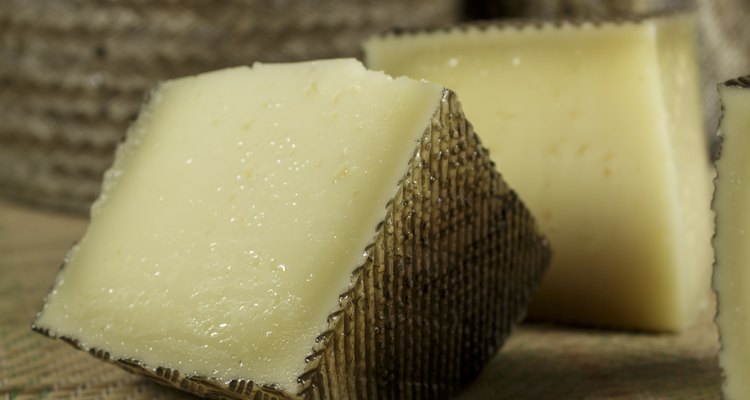
AlonsoAguilar/iStock/Getty Images
Manchego is a specific variety of Spanish cheese that is made from sheep’s milk. In the La Mancha region of Spain, cheese makers use grass molds to imprint a zigzag pattern on finished Manchego cheese. Other varieties of sheep’s milk cheese are known as “Manchego inspired” or “Manchego style” but are produced outside of the La Mancha region.
Nutrition Facts
Manchego-Cheese.com states that a 1 oz. serving of the cheese has 20 mg cholesterol, 150 mg sodium, 300 mg calcium, 7 g protein, 150 IU vitamin A, no carbohydrates, fiber or sugar and 7 g total fat, 5 g of which are saturated.
Calories
A single ounce of Manchego cheese has about 90 calories, 70 percent of which come from fat and 30 percent of which come from protein. A larger amount of the cheese, 100 g, has 320 calories, proving that serving size can make a big difference in nutrition totals for the cheese. Additions and accompaniments are facts as well; eating an ounce of Manchego cheese with a thick slice of bread, for instance, can add 100 calories or more to the total.
Flavor
Manchego cheese has a salty taste because cheese artisans rub the finished product with coarse salt or soak it in salted water before shipping it off to sell. The cheese itself is buttery, aromatic and “slightly piquant,” with an aftertaste of sheep’s milk, states Manchego-Cheese.com, which recommends pairing the cheese with sun-dried tomatoes, olives, crusty bread, fruit, dry sherry or red wine.
Alternatives
No other cheese has the precise flavor, texture and appearance of Manchego, but if you’re watching your weight or have specific calorie concerns, it may be wiser to choose an alternative with a more appealing nutritional profile. Try a low-fat or reduced-fat sheep’s milk cheese for similar flavor, or simply serve yourself a very small portion of Manchego with low-calorie, healthy accompaniments, such as fresh fruit slices and whole grain crackers.
Considerations
Because of its high fat content, Manchego cheese isn’t likely to do strict dieters any favors. The cheese does fit within the “dairy products” group of the U.S. Department of Agriculture's MyPyramid, which also recommends daily servings of whole grains, fruits, vegetables and lean proteins -- although the eating plan recommends that consumers choose low-fat or nonfat dairy for the most health benefits. If weight loss is your goal, try eating Manchego cheese in moderation and as part of a balanced, low-calorie diet of more nutritious foods.
Related Articles
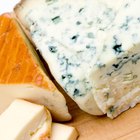
How to Crumble Gorgonzola Cheese
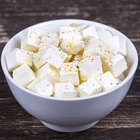
How Much Fat Is in Feta Cheese?

Difference Between White Cheddar & ...
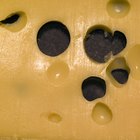
What Types of Cheeses Are Unpasteurized?

How Long Can You Refrigerate Nacho ...

Feta Cheese Nutrition

Baking Substitutions for Ricotta Cheese

How to Order Cooper Sharp Cheese
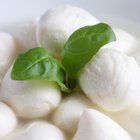
Fresh Mozzarella vs. Regular Mozzarella ...

Provolone Cheese Nutrition Information
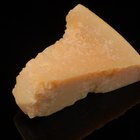
How to Store Parmesan Cheese
Nutrition Information for Onken Yogurt
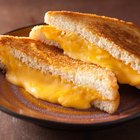
How Many Calories Are in a Slice of ...
Can I Substitute Sour Cream for Yogurt ...
How to Pan-Fry Cheese

Do You Thaw Frozen Cheese Before ...
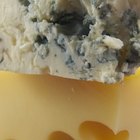
How to Freeze Cheeses

The Difference Between Fresh Cheese & ...
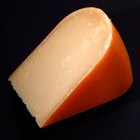
What Is Animal Rennet?
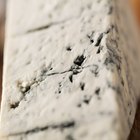
What Good Bacteria Is in Cheese?
Writer Bio
Carly Schuna has been freelance writing and editing for more than a decade. In the lifestyle sector, her specialty areas are wellness, food/drink, and entertaining. With hundreds of recipes and nutrition-focused articles in her portfolio, Carly loves helping readers put a healthy spin on classics in the kitchen without sacrificing taste.
Photo Credits
AlonsoAguilar/iStock/Getty Images